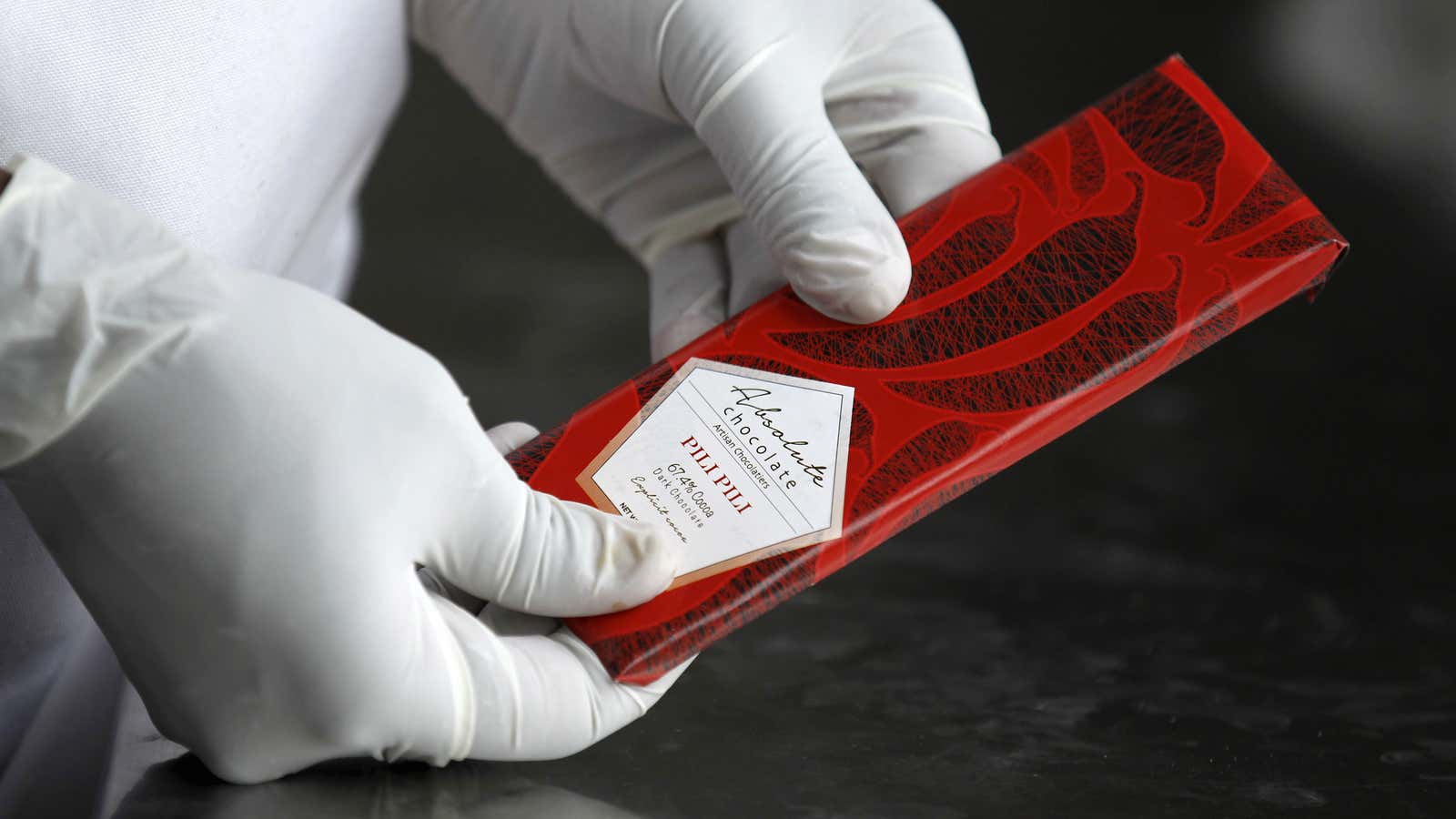The great Mast Brothers chocolate scandal of December 2015 has left a bad taste in my mouth: What started as an informative conversation about authenticity and accountability in the food world has since turned into a nasty attack on food artisans. And we should be talking about them as the exception, not the rule. Small-scale artisans are an important part of the American economy; they’re not only changing our taste in food but also building stronger, happier communities.
But let’s back up for a second. Lost a bit in the Mast Brothers controversy in particular is one simple fact: most artisanal food tastes good. Very good. I still remember the first time I visited Paris with my family; I piled mounds of brie and Camembert onto thick hunks of baguette, drunk with the rich flavors. When I came back to Dallas, Texas, my best options were Longhorn Colby-Jack and Mrs. Baird’s white bread (OK, I could also buy wheat).
In the past decade or so, options have gotten a lot more diverse—even in Texas. Bakers like Josey Baker Bread in San Francisco, Runner & Stone in New York, and Easy Tiger in Austin have helped elevate bread-baking in this country, while a plethora of cheesemakers like Cowgirl Creamery, the Cellars at Jasper Hill, and Old Chatham Sheepherding Company are doing the same for the smelly stuff. And it’s not just in the big cities: New York City’s Murray’s Cheese has outposts everywhere from Peoria, Illinois, to Augusta, Georgia, democratizing our access to well-made food.
The thing is, artisanal food-making is not a vanity pursuit, nor is it the hobby of well-heeled hipsters. “We all feel alienated from the system of production in America,” craft popcorn maker Bjorn Quenemoen tells Quartz. “It’s increasingly rare and low status to work on any part of building the country. Food is one industry where we can go and ask, ‘How is this actually made? Can I make that process any better?’”
Unlike many of the giant food corporations in the news these days, these folks start from a position of ethical responsibility and concern for the environment and work their way back. Just take a look at how many artisans use alternative energy sources. Peddler’s Creamery uses bicycle power to churn ice cream, and Quenemoen’s company BjornQorn uses solar power to make its popcorn, to name just a few. Maine Beer Company co-founder Daniel Kleban tells Quartz he installed solar panels—at a financial loss—“because it was the right thing to do.”
This new school of artisans believes in their craft, and they believe in the sense of community really good food can create. “I’m running a brewery because I love the idea of owning a small business that works closely with the community,” Evan Williams of Glass Bottom Brewery tells Quartz. It’s good for building brand loyalty, but it also can pay off financially. When the brewery needed sheep to mow their hops (yes, real sheep), they didn’t turn to traditional investors but instead to their customers, who funded the initiative themselves. Not surprisingly, Kleban says he and his co-founder brother are “not out for world domination” but instead want to “treat our employees well, treat the stuff we produce well, and treat our communities well.”
That mandate also means a commitment to higher-quality ingredients, a hallmark trait you’ll find in most artisan food. Take chocolate: Big corporations have been accused of using lower-quality beans and paying farmers below-market rate for their hard work. American bean-to-bar makers like Taza and Amano, on the other hand, actually visit their farmers, searching for the best beans in the world to use in their products and paying what industry experts say is often a much more fair price. Seneca Klassen, the owner of Lonohana Chocolate, actually grows the high-quality cacao that he uses in his chocolate himself. That’s why his bars are worth every penny of that $14.
Not that food artisans aren’t getting something out of it, too. Many of the newest generation of entrepreneurs are millennials who are putting their money where their mouth is, literally. Matt Tolnick was working at a “pretty run-of-the-mill evil job in litigation” when he left to found Lawless Jerky; Sam Lehr left a “high-powered law firm” in Washington DC to start Muchomas Chocolate. And despite stereotypes about lazy young people, these business owners work hard. Really hard. “It’s an 8-to-8 lifestyle, not 9-to-5,” Williams notes.
Of course, all of this emphasis on small-batch, handmade, buzzword-worthy food means that you have to be a discerning customer. Not everyone who claims to be an artisan is, since there are no legal requirements to use the word. That’s why you’ll find “artisanal” soda from Pepsi, “small-batch” beer from MillerCoors and Anheuser-Busch, and even “hand-tossed” pizza with manufactured imperfections from Pizza Hut.
Yes, once in a while an “artisan” company doesn’t follow through on their marketing. But fortunately, chocolate isn’t like apples: One bad bar can’t ruin the bunch.
